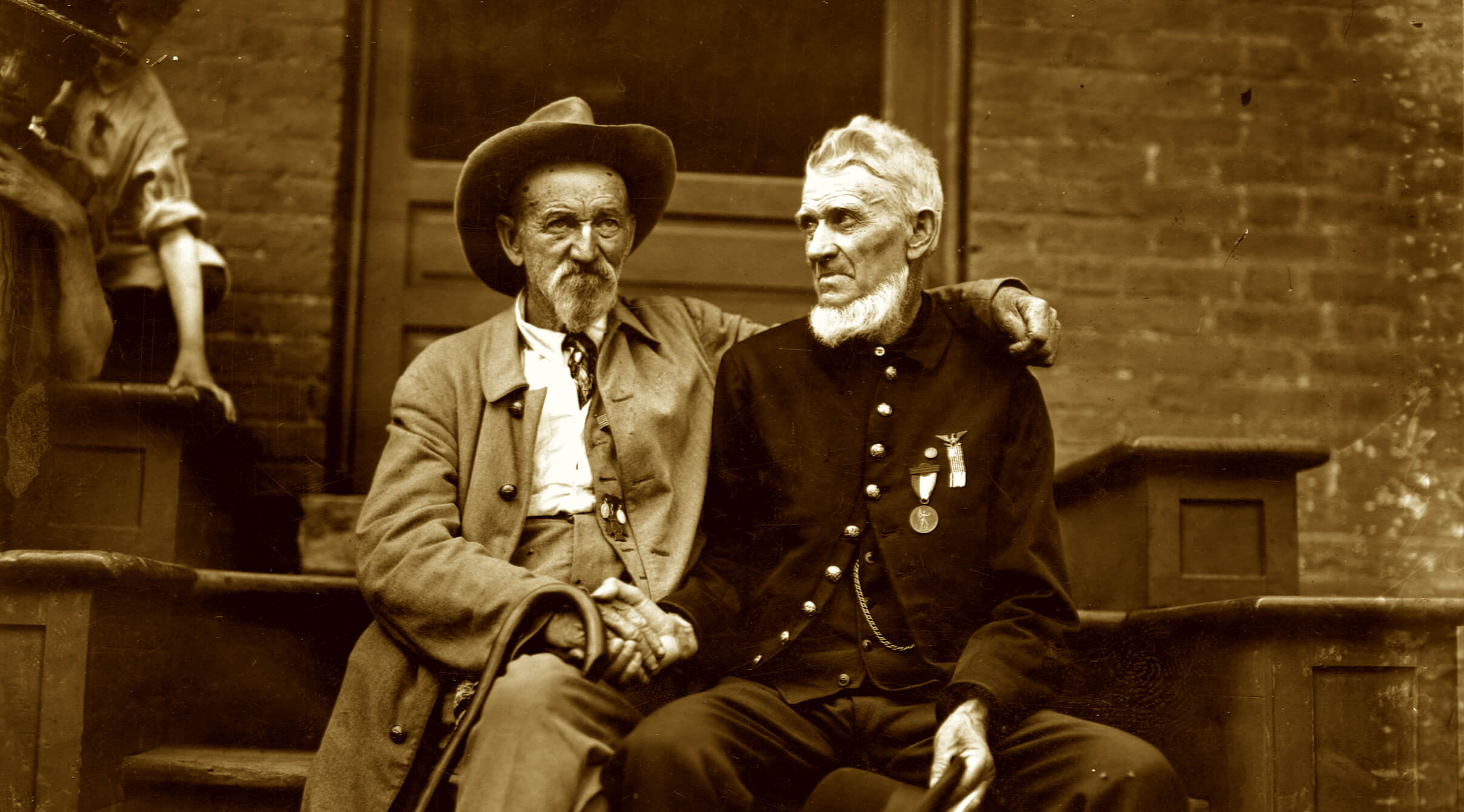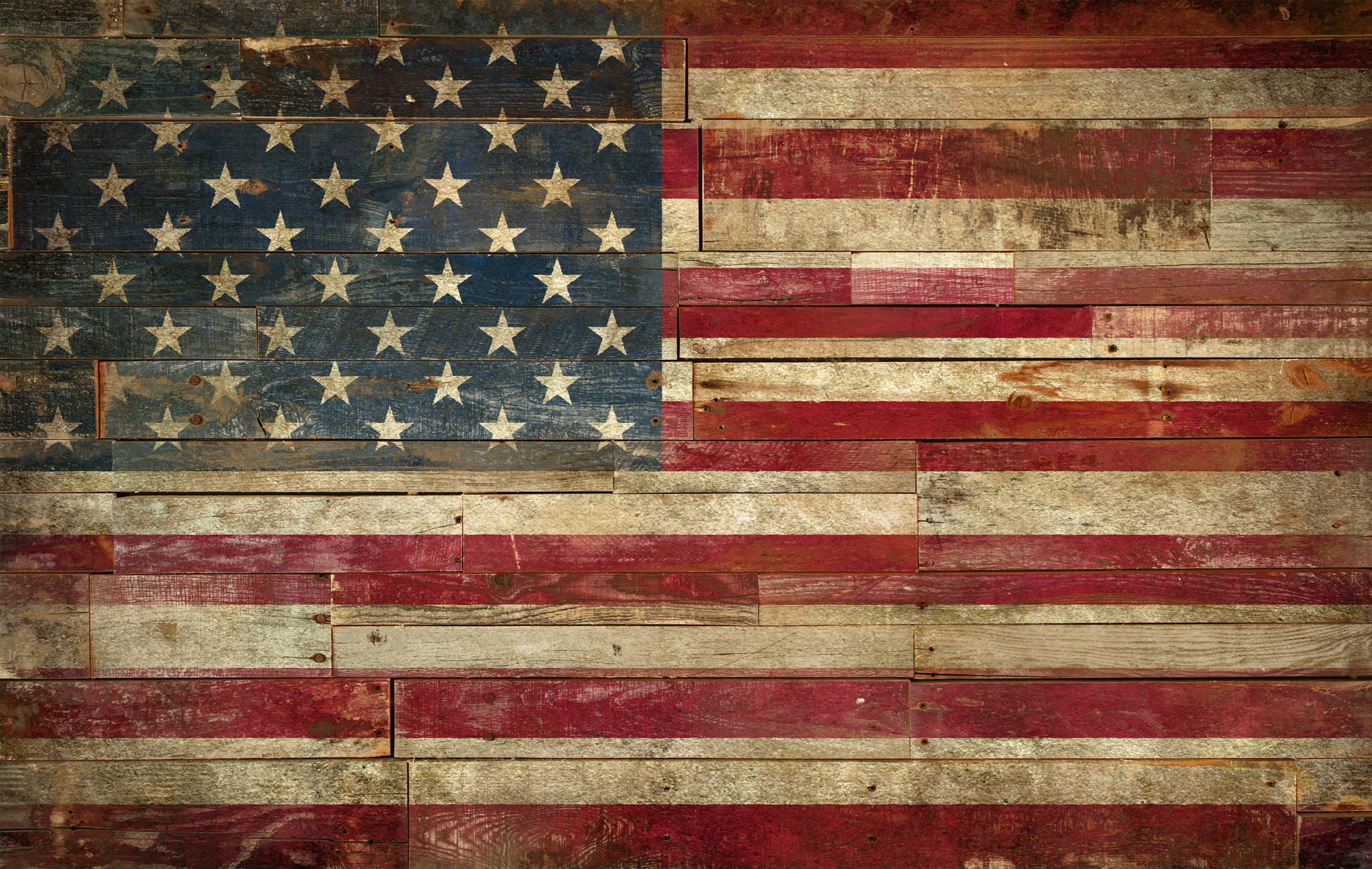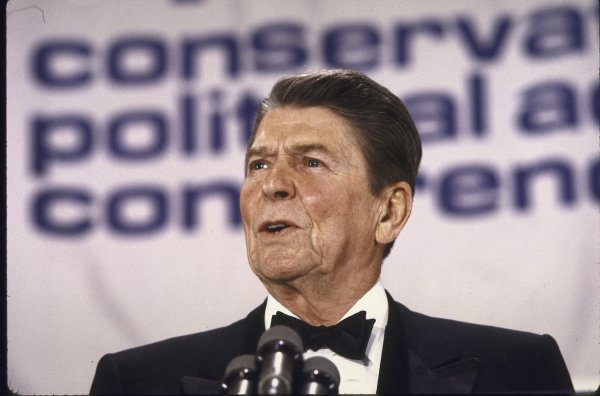The Claremont Institute's Center for the American Way of Life opens its doors.
Americans Unite

Can the veterans of the old conservative wars come to a truce?
This is a shortened version of an article originally published in American Greatness, which can be found here.
Teachers, friends, and colleagues of mine from the Claremont-Hillsdale school (or “CHS,” after where most of us were trained, and many now teach) have spent years making a concerted effort to find common ground with fellow travelers on the Right who may be broadly understood as paleoconservatives.
I’m happy to say that, to a large extent, the effort has borne fruit. Many paleoconservatives have been published in the Claremont Review of Books and American Greatness, while many CHSers (me included) have written for Modern Age and The American Conservative. There is more crosspollination and friendly dealing today between the two groups than ever, with each side attending and speaking at the others’ conferences and so on. I think we’ve even learned from each other. I know I have. Exposure to paleo ideas has influenced my thinking on trade, immigration, and foreign policy, among other subjects.
My commitment, however, to the core tenets of CHSism—which I consider to be nothing more (or less) than an attempt to understand Americanism, without any alterations or admixtures—has never shaken. That’s not to deny that I’ve become increasingly dismayed at the way this understanding of Americanism is often deployed, especially by what Charles Haywood of the excellent book review-blog The Worthy House calls “the catamite right.” My own preferred term is “Cracker Jack Claremontism,” after the tiny comics that used to come inside the boxes of caramel corn. Too small for anything but a few pictures and words, and meant for little children, they had to convey a simplistic story very briefly.
Over time, a fake, pulpy, distorted, thumbnail version of Claremontism took over large parts of the Right. Kids, and many grown-ups, who never even struggled through Federalist #1, #10 or #51—much less the vast numbers of other essential founding texts—confidently assumed they could summarize the whole thing in a few words and phrases. “Equality,” “liberty,” “proposition,” “America is an idea,” “Constitution,” “nation of immigrants”—these were all you needed to know to understand not merely the founding but the whole country.
To the extent that my school (or myself) had anything to do with propagating this garbage—and that extent is not zero—I sincerely apologize. Some of us have been trying to make amends by telling a fuller account of the story, emphasizing those points left out of the Cracker Jack comic, correcting old errors, and making new friends.
Alas, it appears that among those will not be Brion McClanahan or the editors of Chronicles magazine. This was always going to the hardest hill to climb and I had no illusions about ever making much headway. The rancor of the old fights was too bitter to have cooled completely.
But this might not be so in the case of others of the paleo persuasion. It is for them I write. Nor is the exercise entirely academic. If the American republic fails, then the question of what follows takes on paramount importance. There will still be people alive on the American continent. How will they organize themselves? According to what understanding and which principles? The same questions with which the founders were forced to wrestle will again be front and center. Before we reject their solutions, we had best know what they were, and then evaluate them against the available alternatives.
Attacking or Defending the Founders?
McClanahan’s attack on the Trump Administration’s 1776 Commission report is never clear on what exactly it’s asserting. Something is said to be terribly wrong, but what? Is it the actual founding or a later interpretation? Were the founding principles wrong? If so, is that because the founders made an honest mistake? Or did they not really mean what they plainly said? McClanahan couldn’t be clearer that he thinks catastrophe is upon us (I agree). But he is much less clear as to what he thinks is the cause. Errors committed by the founders? Misunderstandings of the founders—deliberate or otherwise? Transformation of their vision—aided by misinterpretations of their rhetoric, or entirely grafted on, like an alien plant?
McClanahan begins by calling the 1776 Commission report “claptrap” and the “intellectual sibling” of the New York Times’s ferociously anti-American “1619 Project.” He goes on to state, rightly, that the 1776 Commission was created to “combat” the aforementioned “1619 Project,” which “paints American history as a story of black slavery and white supremacy.” It would seem, then, that to attack the 1776 Commission, McClanahan would have to do one of two things. First, he could argue that America and American history do not deserve a defense against the charges of the 1619 Project because that project basically got it right: America is racist and evil, hence the 1776 Commission’s defense is false. Or he could defend the founding on the ground that it was just as racist as the 1619 Project says it was, but assert that the founders’ (alleged) racism is true and just.
McClanahan doesn’t say either of things, but neither does he really reject either. Was the founding racist and good? Racist and bad? Not racist but still bad? The one thing we can deduce is that it cannot have been both non-racist and good, because that is precisely what the 1776 Commission report asserts, and if McClanahan is clear about one thing, it’s that the report is very bad.
Neocon Phantoms
To demonstrate how bad the report is, McClanahan then offers his own Cracker Jack version of it:
“The 1776 Report”…viewed the Declaration’s “self-evident” truth that “all men are created equal” as a foundational promise betrayed by bad actors in American history, mostly from the South.
Not to be outdone by King, the 1776 Commission blames John C. Calhoun for modern identity politics, for the distortion of the true founding principles enshrined in the Declaration, and for the deaths of the 600,000 men who perished in the Civil War. If not for Calhoun, “The 1776 Report” authors seem to suggest, the United States would today be a utopia of free-thinking nationalist egalitarians dedicated to the proposition that “all men are created equal.”
Certainly, the CHS holds that “all men are created equal” was (and is) a “foundational promise,” but one betrayed less by “bad actors…from the South” than by the enormous difficulty of reconciling the principle of equality with the reality of slavery. Jefferson grasped this from the first; he famously tried to include a condemnation of slavery in the Declaration only to have it excised by other delegates. Moreover, some of his most famous quotes—e.g., “I tremble for my country when I reflect that God is just”—center precisely on the difficulty of reconciling the fact of slavery with the principles of the nation. Late in life, Jefferson foresaw the breaking of the nation over slavery.
McClanahan later asserts that “Jefferson himself downplayed the importance of the Declaration’s phrase ‘all men are created equal,’” but offers no textual support for this assertion. One could, however, offer to the contrary Jefferson’s late-life correspondence with his comrade-nemesis-friend John Adams in which both take evident pleasure in reminiscing about the glories of ‘76 and the meaning of that document. McClanahan continues: “To Jefferson, the last paragraph, not the second, provided the most important language of the Declaration. Most of the founding generation agreed.” Again, there is not even an attempt at substantiation.
We Don’t Need No Equality
These assertions come in the midst of a long digression in which McClanahan attempts to establish that the founders didn’t talk much about equality during the Constitution’s ratification phase. But as McClanahan himself tacitly admits, this was because they were busy debating the precise phrases and provisions of the Constitution itself. The assertion that equality was, for the founders, little more than a throwaway line is belied by the myriad speeches, sermons, pamphlets, letters in which similar, even identical, language appears. Above all—and most tellingly—there are the founding-era state declarations of rights and constitutions. For instance:
- Virginia: “All men are by nature equally free and independent”
- Pennsylvania, Vermont, New Hampshire, and Ohio (identical language): “All men are born equally free and independent”
- Massachusetts: “All men are born free and equal”
- New York, quoting the Declaration of Independence: “all men are created equal”
- Kentucky and Connecticut (again, identical language): “all men, when they form a social compact, are equal”
If equality was in the Declaration of Independence merely as an afterthought, how is it that it also made it into all these other documents (and many more)? And if the phrase “all men are created equal” meant so little to the founders, why did they say it?
The most common paleocon answer is that the founders meant only to assert the equal “rights of Englishmen.” But that’s not what the founders said—not in the Declaration, nor in any of those state documents. More importantly, the American founders knew full well, and from bitter experience, that all Englishmen were not considered equal, nor treated equally. The founders were specifically rebelling against England and the English system with its legally enforced order of rank. “All men are created equal” is an attack on aristocracy no less than an assertion of fundamental principle.
To this extent, “all men are created equal” was revolutionary for its time. But in other ways, it expressed only common sense. Men are equal in God-given natural rights but (obviously) unequal in talents, virtues, abilities and other attributes. Equality of rights requires consent for a government to be just. The best or most practicable way to secure consent in a large country is through representative institutions. Hence “no man may rule another without his consent.”
So is equality, as the founders understood it, true or false? If it is false, in what ways is it false? These questions will matter urgently if and when some reorganization of our politics becomes necessary. I doubt that calls for a “new aristocracy,” which one occasionally hears on the Right, will hold much appeal for anyone not himself expecting to be anointed with holy oil in the new order. For everyone else, being told “I’m a duke but you’re a serf” will not fly. After all, isn’t that (more or less) the objection most on the Right have to the self-anointed Ruling Class of today?
Can We Admire the Founding?
From the foregoing considerations, we can deduce the following six possibilities:
- The founders believed equality is true and they were right.
- The founders believed equality is true but they were wrong.
- The founders initially believed equality is true but later came to believe they had been wrong, even though in fact they had been right.
- The founders initially believed equality is true but later came to realize they had been wrong, because equality actually is false.
- The founders wrongly believed equality is false but asserted it anyway for other reasons.
- The founders rightly believed equality is false but asserted it anyway for other reasons.
It would seem that any possibility other than the first would require a significant lowering of our assessment of the founders. The second through fifth make them unwise in precisely the enterprise in which they were engaged: founding a new country. The fifth and sixth make them liars—and the fifth makes them stupid liars. It thus seems impossible for McClanahan to have any admiration for the founders. He must believe, if he is being consistent, that either they lied or they blew it, or both.
According to the 1776 Commission (and the CHS), the founders’ assertion of equality solved one problem: it established the ground of their revolution’s, and therefore their new government’s, legitimacy. But it also compounded another. Equality is obviously incompatible with slavery, yet the founders had no way to abolish slavery at that time. They did what they could, for instance keeping slavery out of the Northwest Territory and blocking the slave trade, but those measures were necessarily limited. The 1776 Commission defends the founders by citing these and other anti-slavery actions. McClanahan never says what part of this defense is wrong. Does he think the founders were more pro-slavery than the report asserts? Or does he think even these early anti-slavery steps went too far? The latter being, of course, an attack not on the report but on the founders themselves.
Dancing Around Slavery
Throughout his piece, McClanahan dances around the question of slavery. He never defends it but he also declines to condemn it. He seems to know that to assert that slavery is wrong is to admit that the founders’ understanding of equality is right, and vice versa. It is also to beg the question of how best to get rid of that institution, for once one admits it’s wrong, surely one must also wish its abolition, even if the timing and means must be matters of compromise and temporization.
McClanahan clearly hates the way abolition actually happened. How else, and how better, would he have done it? Well, one better way—the only other practicable way I can see—was the founders’ original idea, interrupted by the ascendency in some quarters of Calhoun’s argument, and then revived by Lincoln. And that was: choke it off. Leave it unmolested where it was, but prevent its expansion, and trust or hope that economic modernization in other states (and countries), combined with changing moral attitudes, would eventually make slavery both too unprofitable and too unpopular to continue. At least this strategy would have avoided the Civil War, as Lincoln tried to do.
In perhaps the article’s most misleading paragraph, McClanahan writes:
Antebellum Americans rallied around core tenets of the old republican American tradition: resistance to unconstitutional powers and a proper relationship between state and general governments; strict economy in federal expenditures; opposition to corporate welfare in all its manifestations; sound money and a stable currency; peaceful neutrality and the cultivation of international trade; and more broadly the spirit of personal and political independence.
No doubt some, or even all, of this is true. But it is nonetheless massively untrue in that it ignores the single most important cause of the Civil War: the dispute over the expansion of slavery into the federal territories destined to become states. Most anti-Lincolnites at least bring this up so as to make a pretense of comprehensiveness. Not McClanahan.
1619’s Intellectual Sibling?
Which brings me, finally, to the rhetorical disaster this piece represents. Whether he means to or not, McClanahan gives aid and comfort to those on the Left who hate America, hate the Right, and want to associate both with racism and slavery. By attacking and dismissing the 1776 Commission’s defense of the founders with the claim that the latter didn’t really believe in equality (or did but were wrong, or did but changed their minds, or whatever), McClanahan plays right into the Left’s hands. Which, ironically, is exactly what he accuses the Commission of doing. We can be confident that the anti-American Left, which never misses an opportunity for willful misunderstanding to harm an enemy, will take from this piece an implicit admission that the “real” Right is anti-equality and pro-slavery.
The logical inference from McClanahan’s line of argument must be that the founders were dumb and the founding a mess. If his purpose is to encourage Americans to cherish and respect their country—and it’s far from clear that it is—then his message would seem to be “America is fundamentally flawed; love it!” The 1619 Project’s is at least more consistent: “America is racist and evil; hate it!”
At one point McClanahan refers to Patrick Henry’s (perhaps apocryphal) statement “I smell a rat,” a phrase he says that Henry ascribed to “distortions of the American tradition.” But that is false. In truth, Henry’s “rat” was the United States Constitution itself. Henry, an ardent anti-federalist, thought the Constitution concentrated too much power at the federal level. The point here is not whether Henry was right or wrong. It’s that McClanahan, whether he understands it or not, is implicitly attacking the Constitution. That stance may, again, be right or wrong and McClanahan is free to argue against the Constitution if he wishes. But it’s ridiculous to make any claim of standing up for “American history,” the “American experience” or “the American tradition” in the same breath as attacking a core pillar of the American founding.
McClanahan closes with the observation that “American conservatives today are rethinking their commitment to the Republican Party.” True enough; as well they should. He continues: “Trump’s victory in 2016 cemented an already growing dissatisfaction with the proposition-nation wing of the GOP.” This betrays an extraordinary ignorance, or else is deliberate falsehood borne of malice. True, figures such as Jeb! Bush were Cracker Jack Claremontism fellow travelers (though almost certainly without knowing it). But fairness also requires giving the CHS credit for understanding the problems with “nation building” and the post-9/11 wars almost as soon as they started, and for taking the lead in providing deep intellectual support—including through appeals to the principles of both the founders and early Republican Party—for immigration restriction.
More to the point, though, it was CHS scholars who, very early—much earlier than most—saw the promise in what Trump represented, got behind his 2016 campaign, supported his administration, and staunchly supported his reelection. The cheap linkage, then, via the term “proposition-nation wing” to the 1776 Report and the CHS is thus both unfair and false.
Which leaves me to ask, where do we go from here? What was the purpose of McClanahan’s attack, beyond deliberate fratricide? I still hope to gain more paleo friends and help broaden the pro-American populist-nationalist coalition on the Right. I hope this piece serves that end. Clearly McClanahan and Chronicles won’t be coming along for the ride. But I expect others will.
Whatever happens to America, Americanism will live on in the hearts not just of those on the Right but also the vast majority of middle Americans or Deplorables or whatever you want to call them. They love their country, its history, its foundations, its principles, its Constitution, its great documents and speeches, its symbols, and its heroes. All of these, and more, can and should be used to rally them to fight for a better future. The 1776 Commission’s report is useful in that regard. Brion McClanahan’s attack on it is harmful.
The American Mind presents a range of perspectives. Views are writers’ own and do not necessarily represent those of The Claremont Institute.
The American Mind is a publication of the Claremont Institute, a non-profit 501(c)(3) organization, dedicated to restoring the principles of the American Founding to their rightful, preeminent authority in our national life. Interested in supporting our work? Gifts to the Claremont Institute are tax-deductible.
Working citizens rightly rally around statesmanship, not ideology.
An argument lost.
Against the backstabbing, collaborationist “Right.”




